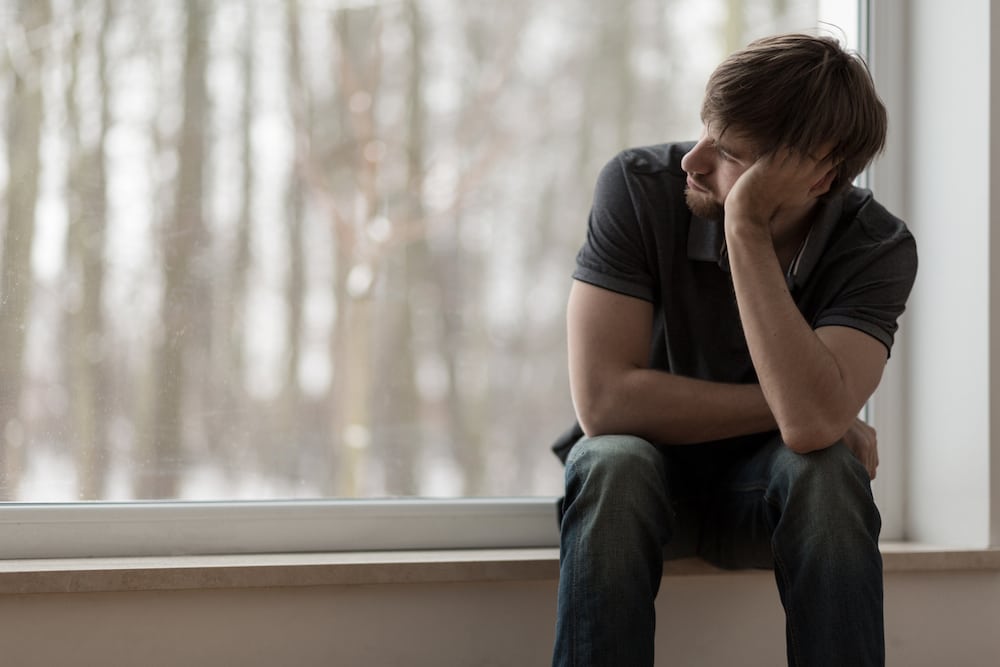Loneliness can be as bad for one’s health as smoking 15 cigarettes a day, obesity, high blood pressures, lack of exercise, or even some cancers – and millions of Australian men are at risk, according to new research released by Healthy Male in the leadup to Men’s Health Week, 12-18 June.
Healthy Male is a national organisation that provides easy access to the latest scientific and medical research on male health.
Forty-three per cent of Australian men are lonely, according to the organisation’s survey of nearly 1,300 Australian men. More than one in six men (16 per cent) reported high levels of loneliness.
“This survey was part of a wider study, and we were really surprised by what we saw,” Simon von Saldern, CEO of Healthy Male, said. “We asked these questions, but we were not expecting such a high level of loneliness.”
The picture is even bleaker in some age groups, Mr Saldern said. One in four (24 per cent) men aged 35 to 49 have a high level of loneliness – a rate almost twice as high as in men aged 50 to 64 years (12.1 per cent), and three times higher than men aged 65 and over (6 per cent). High levels of loneliness are least common for men aged 65 years and older.
Loneliness can increase the risk of depression, anxiety, heart disease, and stroke, Healthy Male states. In older adults, it is linked with cognitive decline and the risk of dementia.
Men who are lonely are 8.5 times more likely to have poor mental health; 3.9 times more likely to have high stress; 1.7 times more likely to have poor physical health; and 1.5 times more likely to have a high work-life imbalance.
Highly lonely men are less likely to have positive attitudes to preventive health behaviours, including healthy eating, disease screening, and regular health checks.
Fifty per cent of men who are not lonely recognise the importance of a yearly GP check-up, whereas only 35 per cent of very lonely men see it as important.
Lonely men are also less health literate (able to access and understand health information, to use information for disease prevention, or to use health services).
Only 48.1 per cent of very lonely men can adequately find and use health information – profoundly lower than low to moderately lonely men (71.6 per cent).
A Curtin University report estimated that poor health outcomes and risky health behaviours associated with loneliness cost up to $2.7 billion each year.
“The figures are concerning,” Mr von Saldern said. “There are a lot of questions still to be answered, as we don’t know how and why loneliness is affecting men’s help health-seeking behaviour, so more needs to be done to investigate the issue of loneliness in Australian men.”
“The way we live our lives probably contributes to the high rate of loneliness,” Associate Professor Timothy Moss, Healthy Male’s health content manager, said. “As a society, we tend to spend more time alone now than we have in the past.”
Andrew Giles MP, Minister for Immigration, Citizenship and Multicultural Affairs, and co-chair of the Parliamentary Friends of Ending Loneliness, has called loneliness “the next global public health emergency we must address”. Rates of loneliness are similar to those reported in the USA, the UK, and Japan, Professor Moss said. The US Surgeon General recently released a report on loneliness, while both the UK and Japan have appointed ministers for loneliness and isolation.
“The social restrictions that were necessary to deal with the COVID-19 pandemic certainly sharpened our focus on loneliness, but it has been a problem since before then,” Professor Moss said.
“The UK and Japan appointed Ministers for loneliness before the pandemic hit because they were aware of the scale of the problem and the need to do something about it. We knew well before the pandemic that loneliness rates were high, and that loneliness is associated with health problems and premature death.
“Loneliness can affect anyone, depending on their circumstances. Different life events affect everyone differently, and there might be some effect of gender. For example, Australian data show that separating from a partner doubles the likelihood that a woman will become lonely; for men, the likelihood of loneliness is 13-times higher in this situation.”
While not much is known about how loneliness affects health differently for men and women, Professor Moss says that women’s loneliness rates are lower than men’s.
“Women tend to have larger social networks than men, which might provide some protection against loneliness,” he said.
However, cardiovascular disease associated with loneliness is not affected by gender.
Healthy Male recommends that lonely men connect with others (such as planning a social activity with family, friends, and colleagues); join groups or clubs; volunteer; or seek professional help.
“We feel lonely when our relationships with others aren’t meeting our needs for meaningful social connection, so increasing social connection is the key,” Professor Moss said.
“Ways of doing this include joining in with social activities through sports clubs, volunteering, or other groups with shared interests. Getting in touch with friends, even if it’s been a while, can help. Using people’s names, giving them full attention, and engaging in conversation might help alleviate loneliness, even if it’s with people like shop assistants, local council workers, neighbours, or people you encounter while exercising. Starting with small talk can lead to more meaningful conversations and satisfying social relationships.
“Friendships need attention and, occasionally, a bit of work. Accepting changes in relationships and some discomfort in social situations as the cost of making and keeping friends can help.”
Healthy Male has tips on recognising and addressing loneliness on its website.



